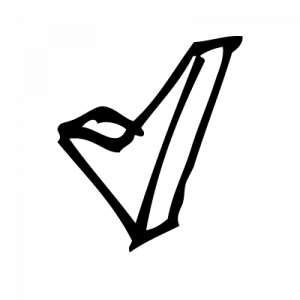I'm doing my research on standardized tests in Europe, and I did find something really weird. The number of GMAT test-takers in Netherlands increased dramatically from 2013 to 2014 (from 1 to 2 thousands). I found that info on GMAT official website, so the data must be right.
But I cannot find any explanation of it.
The numbers in other countries are pretty stable, so I'm going crazy :))
Do you have any ideas why Netherlands are so special?)
What so special with GMAT in Netherlands?
Posted Apr 22, 2015 15:15
But I cannot find any explanation of it.
The numbers in other countries are pretty stable, so I'm going crazy :))
Do you have any ideas why Netherlands are so special?)
Posted Apr 22, 2015 15:29
Primarily this is because of the introduction of the Bologna process: now more Dutch students are completing BSc and BA degres and now taking English-language MSc degrees which require the GMAT.
Posted Apr 22, 2015 16:05
Thanks!
But 100% increase in 1 year with the stable results for the last five ones. It's pretty suspicious!) There must be some other reasons...
But 100% increase in 1 year with the stable results for the last five ones. It's pretty suspicious!) There must be some other reasons...
Posted Apr 22, 2015 16:44
The Bologna process essentially ended in 2010. The first students in the Netherlands to go through the BA and BSc system are appearing. Almost all of them will do MSc degrees. You don't think that 1000 will want to do an MSc in English, perhaps in a university abroad?
If you can think of a better reason, let me know.
[Edited by Duncan on Apr 22, 2015]
If you can think of a better reason, let me know.
Posted Apr 22, 2015 18:06
You mean the implementation of Bologna process have finished in 2010?
No, it's a very reasonable explanation, indeed. But Wikipedia says it started in 2002 - http://en.wikipedia.org/wiki/Education_in_the_Netherlands#Higher_Education
It's very intriguing and all my googling didn't help much.
No, it's a very reasonable explanation, indeed. But Wikipedia says it started in 2002 - http://en.wikipedia.org/wiki/Education_in_the_Netherlands#Higher_Education
It's very intriguing and all my googling didn't help much.
Posted Apr 22, 2015 19:25
Oh, I meant that the Bologna process *ended* in 2010. The Bologna Process was a decade-long project to create a European Higher Education Area. The EHEA was launched in 2010. The Netherlands had tested the shift from the Doctorandus degree to the BA/BSc in the period up to 2008, butt the rest of the system was not Bologna-compliant by then, especially in the uneven transition into doctoral studies (doctoral research was not a compulsory part of the evaluation of universities). Indeed, even now a few universities still have a two-year doctorate. So, it's really only in the period since then that Dutch students have enrolled in English-language BBA programmes, and thus been taking the GMAT.
Hot Discussions
-
UPF-BSM vs EAE Business School vs UAB, seeking insights over potential business schools in Barcelona, Spain.
Nov 07, 2024 177 12 -
"Late Bloomer" with average academics/experience, but 720 GMAT and Polyglot
Nov 07, 2024 109 4 -
Gut check
Nov 11, 2024 119 4 -
Are executive short courses that bad? Any alternatives if employer pays?
Nov 13, 2024 118 4 -
Why do US schools like to hide their tuition fees?
Nov 09, 2024 104 4 -
Europe vs US - Opportunities/ROI
Nov 02, 2024 99 4 -
Emory vs GA Tech
Nov 25 07:57 PM 69 3 -
LBS vs Oxford, move into the UK
Nov 14, 2024 111 2

-94c63.png)
-bbbf1.jpeg)
